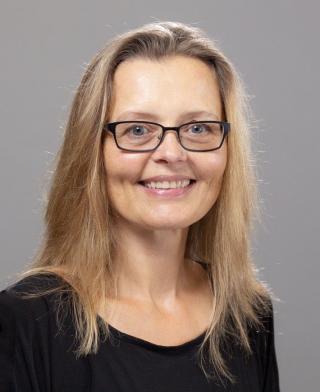This course sets the foundation for exploring identity politics with a juxtaposition of varying theories about identity, with a special emphasis on gender.
Terms Offered
Summer 2021
REGISTRATION CURRENTLY NOT OPEN
Course Details
This course sets the foundation for exploring identity politics with a juxtaposition of varying theories about identity, with a special emphasis on gender. Building on this literature we examine empirically how gender rights and rights of the LGBTQ community vary across the world, how these have changed over time, and what are some of the cross-national correlates of change. We then delve deep to the sub-national case level to ask how a gender inclusive society was built in Iceland, which is currently ranked first in gender equality in the World Economic Forums World Gender Gap Index and, according to the Global Acceptance Index, ranks among the five most LGBTQ rights accepting countries in the world.
Number of credits: 3
How You Will Learn and Work
This is a Global Classrooms Connections Course. This course will include a blend of synchronous and asynchronous learning.
Global Classrooms global learning opportunities within this class will include engaging with Icelandic scholars in conversations about identity and power in Iceland and around the world; viewing cultural sites through virtual tours; engaging with global scholars through social media and real time synchronous sessions.
Cultural Connection
Iceland
General Education Credits
None
School/College
College of Behavioral and Social Sciences
Prerequisites & Restrictions
None
Faculty Highlight

Jóhanna Kristín Birnir
Jóhanna Kristín Birnir is a Professor in the department of Government and Politics (GVPT) and the director of GVPT Global Learning. Jóhanna studies the effect of identity (ethnicity, religion, gender) on contentious political outcomes (elections and violence), and has done extensive fieldwork in the Andes, South-East Europe and Indonesia. Jóhanna´s first book "Ethnic Electoral Politics" (Cambridge University Press) examines the relationship between political access and minority strategic choice of peaceful electoral participation, protest or violence against the state. Her current book project (forthcoming Cambridge University Press and supported by the Global Religion Research Initiative - University of Notre Dame) examines the relationship between identity (ethnicity and religion) and minority peaceful and violent political mobilization. Jóhanna´s articles on identity and politics are published in numerous academic journals including the American Journal of Political Science, Comparative Political Studies, Journal of Peace Research, Journal of Conflict Resolution, Party Politics, Latin American Research Review, and Journal of Global Security Studies. Her research has been supported by the National Science Foundation and The National Consortium for the Study of Terrorism and Responses to Terrorism and Folke Bernadotte Academy.
Tuition & Scholarship
Course costs should be calculated based on the university’s standard tuition and fees for undergraduate students and graduate students.
Students enrolled in winter and summer Global Classrooms courses may be eligible for the International Education Scholarship.
Cancellation and Refunds
Global Classrooms courses follow UMD's Schedule Adjustment policies.
Questions & Contact Info
For more course information contact Jóhanna Kristín Birnir at jkbirnir@umd.edu.
For general questions, please contact the Global Classrooms team at globalclassrooms@umd.edu.
